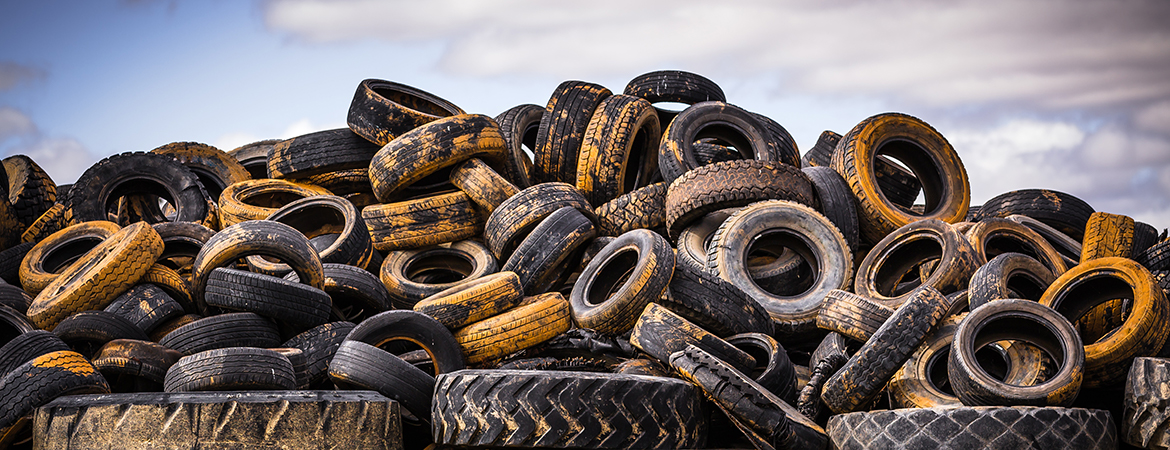Why should you recycle your used tires?
Tires were built to be indestructible. While that’s great for your vehicle, it’s bad news for the Earth. So what exactly happens to our tires once we're done with them?

Tires were built to be indestructible. While that’s great for your vehicle, it’s bad news for the Earth. In the past, tires often ended up as junk in landfills, stockpiles, vacant properties, on the side of the road, and in waterways. Repurposing tires was almost unheard of just 25 years ago, and, back in 1990, only 11 percent of scrap tires each year were recycled, according to the U.S. Tire Manufacturers Association (USTMA).
Thanks to aggressive repurposing efforts at the national and state level, innovative technologies, and environmental regulations, the recycling of tires is now a priority in the U.S. While tires are one of the most recycled products in the U.S., the end-of-life markets are not keeping pace with the annual generation of scrap tires, according to the USTMA.
The 2021 Scrap Tire Management Report, the most recent report available, revealed that about 71% of scrap tires were recycled in 2021. This is down from 96% in 2013, when scrap tire recycling peaked.
“Three decades after we successfully eliminated 94% of the over one billion scrap tires stockpiled around the country, this report reveals that efforts to find and develop new uses for scrap tires have stalled,” said Anne Forristall Luke, president and CEO of USTMA. “We must take immediate steps to grow new and existing markets to recycle 100% of scrap tires. This not only protects our health and the environment - it drives innovation and jobs.”
The Kentucky Division of Waste Management (DWM) estimates that about 4 million scrap tires are generated annually in Kentucky. The DWM strongly encourages consumers to leave worn tires with the retailer when purchasing a new set. For a small fee, that retailer can manage the tire in an earth-friendly way.
For individuals who prefer to manage proper tire disposal themselves, the state-run Waste Tire Collection Program allows Kentuckians to drop off unwanted tires at specific locations within their county at no cost. The division warns that residential pickup services will not take used tires, and not all landfills will, either.
So what happens to tires when they retire from life on the road? Luckily, used tires can be made into many awesome things, like:
- Tire-derived fuel
The majority of used tires are turned into a more economical alternative to fossil fuels. This gas is commonly used in cement kilns, paper mills, and industrial boilers.
- Ground rubber
More than 60 million used tires in the U.S. each year are recycled as rubberized asphalt, sport surfaces like fields and running tracks, mulch, and rubberized asphalt. Never heard of rubberized asphalt? This method results in quieter, more durable roads.
- Civil engineering
Tire shreds are a lightweight alternative to fill materials such as gravel or sand. Recycled tires work great for road and landfill construction, septic tank leach fields, and embankments. Their compressibility and high permeability make tire shreds a perfect fit for building retaining walls. Tire shreds drain much better than gravel, and provide 9 times more thermal insulation than gravel.
- Do-it-yourself home projects
There are plenty of things you can do with used tires around your house. Turn them into colorful flowerbeds, or give your kids the gift of an old-fashioned tire swing. You can even paint one and stuff a pillow inside for a wonderfully fluffy pet bed. Just be aware that if you allow water to collect in a tire, it can become a breeding ground for mosquitoes.
For more information on Kentucky’s Waste Tire Collection Program, click here.
>> KFB lives and works in the Bluegrass State. To see some of the ways we’re invested in helping Kentucky flourish, click here.
